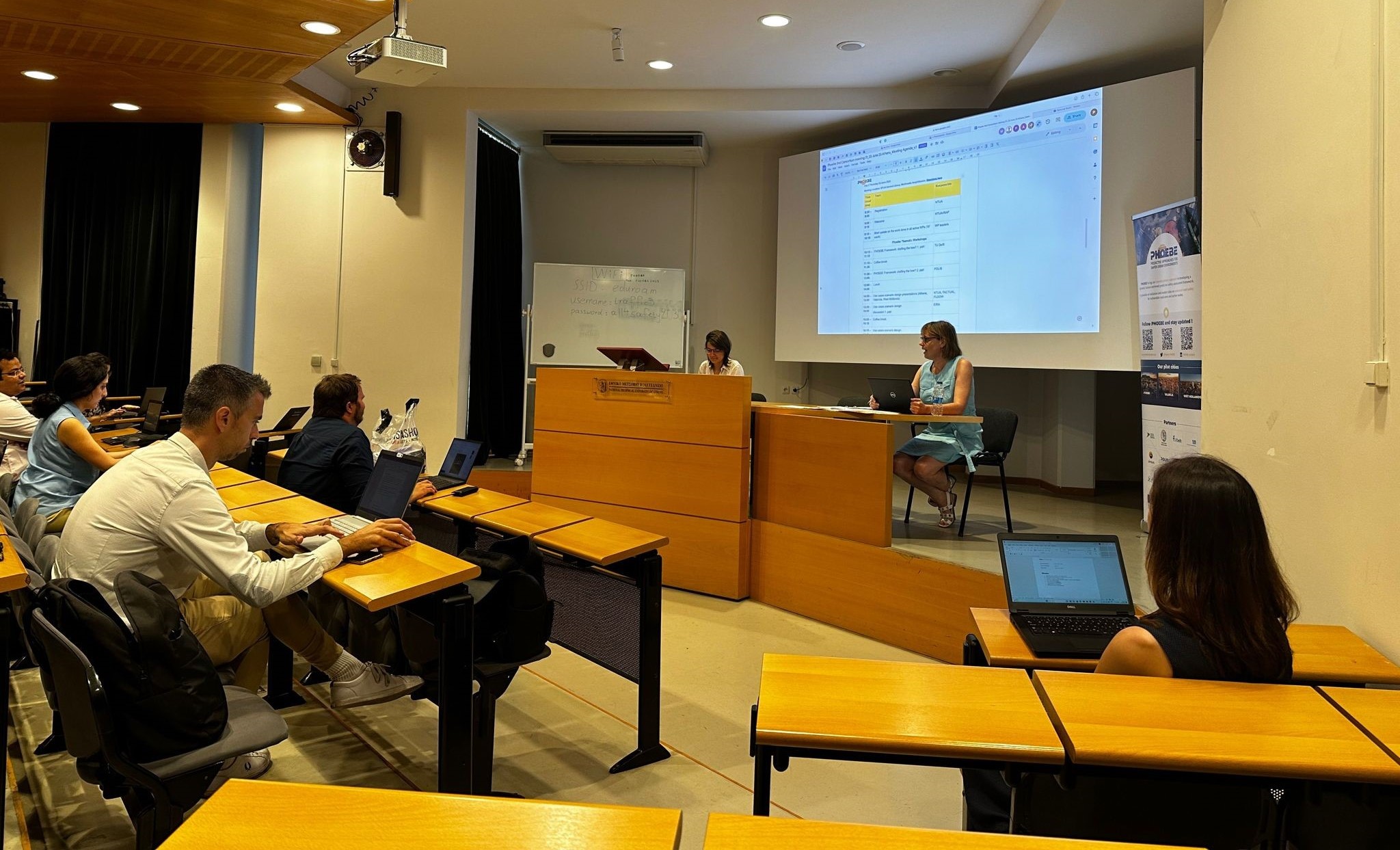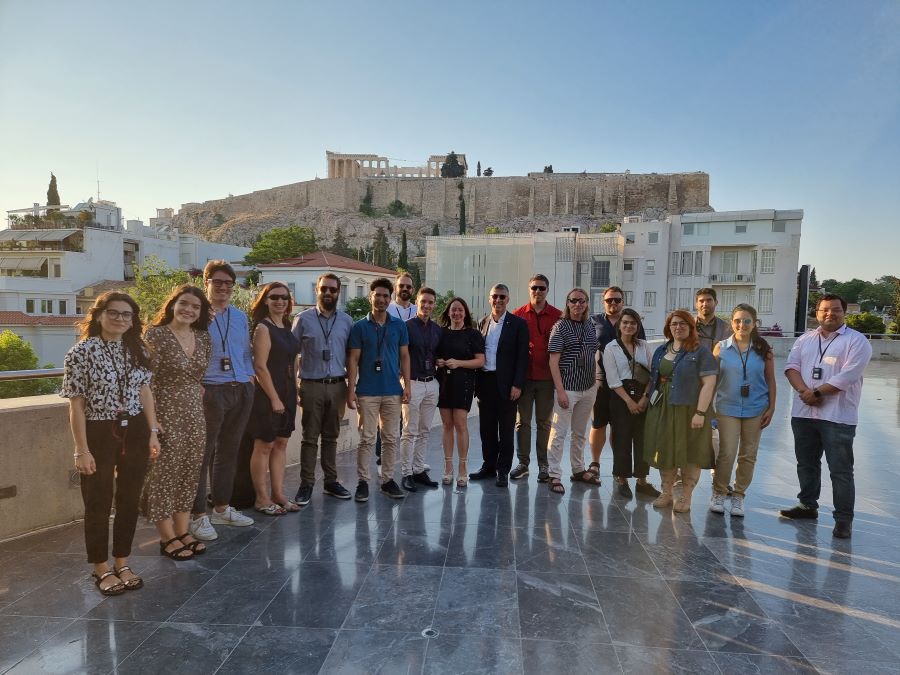A third PHOEBE consortium meeting held last week in Athens included a walking tour and inspection of the project’s pilot plans to assess the effectiveness of protective measures for vulnerable road users (VRUs) in the city’s urban areas.
The 3.5 year EU-funded project ‘Predictive Approaches for Safer Urban Environment’ (PHOEBE) aims to develop an integrated, dynamic, human-centred, predictive safety assessment framework for VRUs in urban areas, drawing inspiration from real-world scenarios in three pilot cities of Athens, Valencia and West Midlands. It will achieve this by bringing together the inter-disciplinary power of traffic simulation, road safety assessment, human behaviour, mode shift and induced demand modelling, as well as new and emerging mobility data.
The modern city of Athens with its 3.5 million inhabitants, is built around the ancient ruins from the antiquity, which creates several challenges for mobility. Despite this, the city administration has managed to build nearly 100km of metro lines with an annual ridership of around 250 million. Even with this mass transit solution and a bus and tram network, a modal split exists. Athens remains a car-dominant environment and cycling can be dangerous. PHOEBE aims to enhance road safety for active mobility users in the city.
The National Technical University of Athens (NTUA) hosted the meeting from 21-23 June and shared the university’s plans within the project.
NTUA will contribute to various aspects of the research activities, including the development of innovative methodologies to address integrated risk assessment for the protection of vulnerable road users, such as pedestrians and cyclists. Specifically, NTUA is responsible for the consolidation and synthesis of knowledge obtained within the project activities building on the theoretical principles of the methodological framework. This will help to create a suite of knowledge products, resources and tools for use beyond the project.
NTUA will also lead the Athens use case, including the selection of test scenarios and the collection of data from different sources.
The Athens pilot will assess the effectiveness of the project’s protective measures for vulnerable road users in urban areas.
Athens intends to promote safe and sustainable mobility by targeting VRU safety with three major interventions focussed on public transport, implementing a city-wide 30km/h speed limit and the establishment of an extensive network of bicycle routes within the existing road network (mixed traffic, bike/bus lanes and bike lanes on road shoulders).

Policy and regulatory interventions, such as environmental and safety transport charging policies will be evaluated by PHOEBE conducted through scenario tests and simulation. This will provide valuable insights into the impact of these interventions on road user behaviour, mode choice, induced demand and safety outcomes.
NTUA will also study daytime and night time traffic scenarios and the impact various factors such as traffic volume, lighting conditions, availability of public transport, and driver behaviour have on safety. With the simulation models and data analysis differing between the two scenarios, the real dimension of traffic and safety challenges faced by Athens’ residents and tourists will be revealed.
The project’s innovative technologies and analytical approach have the potential to significantly enhance road safety in Athens and promote sustainable mobility.
During the meeting, NTUA took consortium partners on a walking tour of three key parts of the Athens Great Walk, a major urban regeneration project, demonstrating the pedestrianised ‘Vasilisis Olgas Avenue’ linking the Panathinaikon Stadium to the Acropolis walk, Syntagma Square, and Panepistimiou Street (the most central Athens avenue) in which works are in progress to replace two out of six traffic lanes with more space for pedestrian and city activities.
This third project Consortium Meeting was organised by iRAP, the European Institute of Road Assessment (EIRA) and NTUA and also included partner presentations on the project framework, use case scenario designs for the three project cities, and updates on project progress.

iRAP Project Coordinator Shanna Lucchesi and Chief Financial Officer Shona Holroyd share project plans
The results of Project PHOEBE, funded by the Horizon Europe, will provide a blueprint for other European cities, providing a socioeconomic analysis model, urban road safety assessment, and human behaviour and choice modelling, which connect the models and methods of iRAP and Aimsun to promote vulnerable road user safety in urban areas.
Follow the progress of Project PHOEBE at https://phoebe-project.eu, as well as on LinkedIn and Twitter.
Images and content credit: NTUA and PHOEBE


















